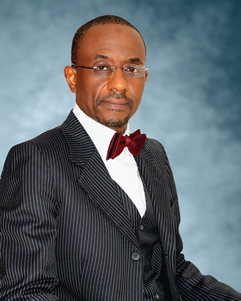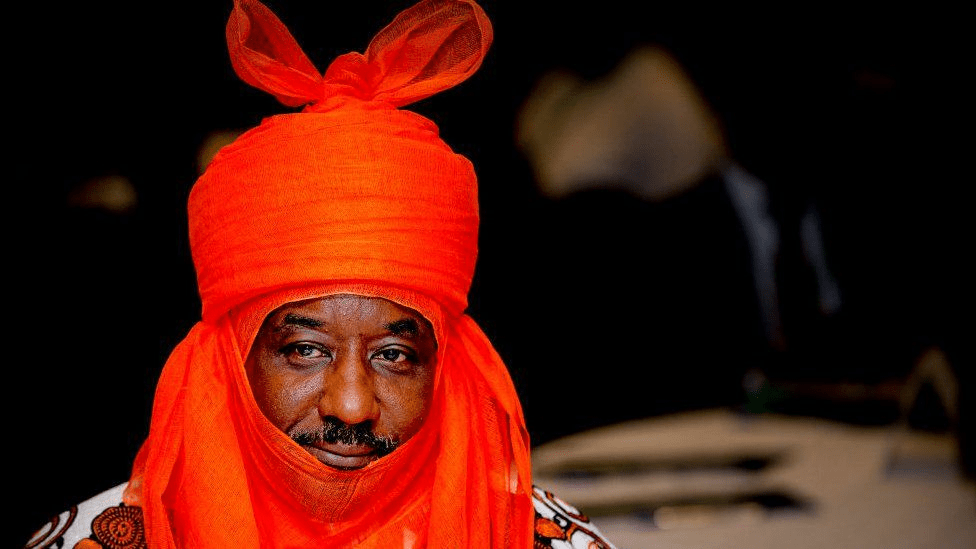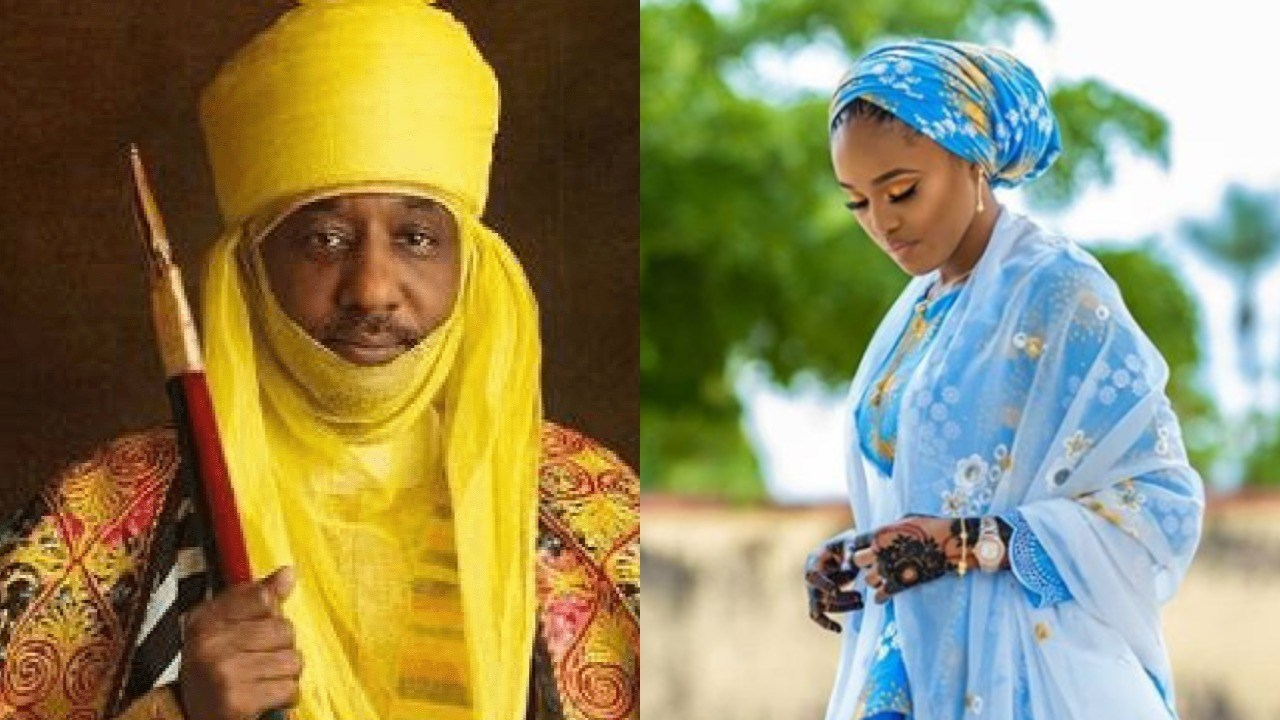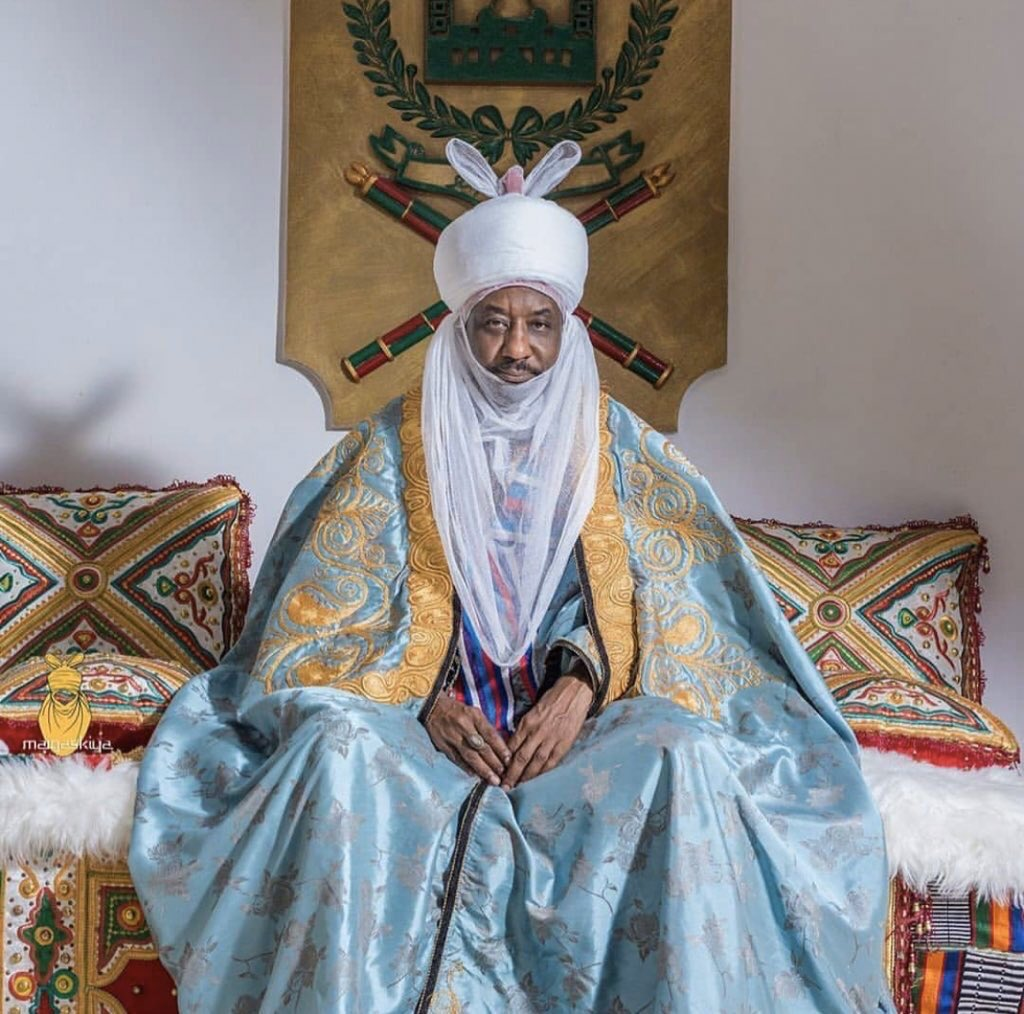Sanusi Lamido Sanusi, also known by his holy name Khalifa Sanusi II, is the head of the Nigerian Tijanniyah Sufi order. He was the Emir (sarki) of Kano and is a descendant of the Dabo family. The grandson of Muhammadu Sanusi I, he was born into the royal family in Kano in 1961. He ascended to the throne on June 8, 2014, taking over from his great-uncle Ado Bayero. Until his deposition by the Kano State Government on March 9, 2020, he spent most of his reign calling for cultural reforms in Northern Nigeria.
Table of Content hide 1 Sanusi Lamido Biography 2 Career 3 CBN governor 4 Emir of Kano 5 Achievements 6 Controversies 7 Sanusi Lamido net worth 8 Sanusi Lamido now 9 ConclusionSanusi Lamido Biography
Sanusi was born on July 31, 1961, in Kano to a ruling-class Fulani family of the Sullubawa clan. He spent his formative years in the palace of his great-uncle Ado Bayero, who ruled for over 50 years. Aminu Sanusi, his father, was a prince and diplomat who served as the ministry of foreign affairs’ permanent secretary and ambassador to Belgium, China, and Canada. In addition, he was the Chiroma of Kano and the son of Muhammadu Sanusi I, the 11th Fulani Emir of Kano from 1953 to 1963, when he was overthrown by Sir Ahmadu Bello, one of Muhammadu Sanusi’s cousins.
Sanusi obtained his early religious education at home, where he studied the Qur’an and Prophet Muhammad’s customs. He attended a Catholic boarding school, St. Annes Primary School in Kaduna, before moving on to King’s College, Lagos, from 1973 to 1977. In 1981, he graduated with a bachelor’s degree in economics from Ahmadu Bello University, Zaria, Kaduna State. Following graduation, he served as a teacher in a girls’ boarding school in Yola, Adamawa State, for a year as part of his National Youth Service. Afterwards, he returned to the university, earning his master’s in 1983 and giving the faculty two years of lectures.
Later, Sanusi relocated to Khartoum, Sudan, and enrolled at the International University of Africa to study Islamic studies. He acquired fluency in Arabic, and studied the Qur’an, law (fiqh), and philosophy (falsafa), among other subjects. He also read works by notable Western intellectuals and Islamic authorities and was exposed to the four Sunni madhhabs of Hanafi, Maliki, Shafi’i, and Hanbali.
ALSO READ: Mike Adenuga: Biography, career, businesses, net worth, family
Career

Sanusi started his banking career in 1985 when he was hired by Icon Limited, a division of Barings Bank and Morgan Guaranty Trust. He initially worked as a merchant banker for the company before rising to the position of head of financial services and manager of the Kano office.
To pursue Arabic and Islamic studies at the International University of Africa in Khartoum, he left the bank in 1991 and travelled to Sudan. He moved back to Nigeria in 1997 and began working in the credit and risk management division of the United Bank for Africa, eventually rising to the general manager position.
Sanusi was appointed to the board of directors and executive director in charge of risk management in 2005 at First Bank of Nigeria, the oldest bank in Nigeria and one of the biggest financial institutions in Africa. Sanusi took over as CEO in January 2009, becoming the first person from northern Nigeria to lead the bank.
CBN governor
Amid the global financial crisis, President Umaru Musa Yar’Adua nominated Sanusi as the new governor of the Central Bank of Nigeria (CBN) on June 1. On June 3, 2009, the Nigerian Senate approved his appointment. His tenure as CBN governor ended on February 20, 2015.
Emir of Kano

Sanusi was chosen to succeed his granduncle Ado Bayero as the Emir of Kano on June 8, 2014. His inauguration was contentious, and some people thought it was done for political reasons to get him out of charges of corruption stemming from his time working for the central bank. Many opposed Sanusi’s selection because they believed Bayero’s son would succeed him as the Emir.
After the Sultan of Sokoto, Shehu of Borno, and Emir of Gwandu, he was crowned Sarki Muhammadu Sunusi II (also known as Sanusi) on June 9, 2014, making him the 57th monarch of the ancient city of Kano and the fourth-most significant Islamic traditional ruler in Nigeria.
During his six-year rule, the Emir portrayed himself as a captivating figure at the nexus of tradition and modernity. A new Muslim family law was written, a library with 40,000 books was built, the palace from the 15th century was vernacularly modernized, and the Durbar festival was marketed internationally, among other significant advances. Sanusi promoted and encouraged an increase in tourism to historic locations like the ancient Dala Hill and Gidan Makama.
The Emir also contributed to restoring the ancient city’s cultural artefacts, such as clothing, where he pushed for restoring the dying facilities at Kofar Mata, which had been abandoned since the 14th century. Through his personal style and clothing, the Emir also highlighted the work of the city’s most important guilds.
ALSO READ: Charles Soludo: Biography, career, governorship stint, achievements
Achievements
With the stock market falling by nearly 70%, the crisis’ impact on Nigeria’s economy and financial system was enormous. During this crisis, Sanusi oversaw the central bank’s efforts to rescue top-tier banks with more than 600 billion in public funds, removing and arresting CEOs who had misused consumer savings and dealt harshly with banks that proved guilty of financial crimes.
Sanusi blamed Nigerian investors’ lack of financial knowledge for the collapse in the stock markets. To strengthen them and increase their accountability to depositors, he also instituted a consolidation process that saw the number of Nigerian banks decrease through mergers and acquisitions. Additionally, he spearheaded initiatives to increase investment in infrastructure and support for small and medium enterprises.
Several significant financial changes known as the Sanusi Tsunami were launched during Sanusi’s leadership. The reforms were created with four pillars in mind: improving bank quality, establishing financial stability, permitting healthy financial sector development, and ensuring the financial sector supports the real economy. Sanusi introduced and supported the establishment of Islamic banking in Nigeria, a move criticized by the Christian Association of Nigeria.
He also developed the cashless policy, under which financial transactions are not carried out using money in the form of physical banknotes or coins but rather through the transfer of digital information (typically an electronic representation of money) between the transacting parties. Additionally, he disagreed with the National Assembly over its fiscal spending of 25% of all government revenues and refused the International Monetary Fund’s demand for a currency devaluation.
Controversies

According to reports, Sanusi was charged with murder in Kano. Sanusi was accused of conspiring with several radicals to behead Gideon Akaluka, a young Igbo trader, in 1995 after he returned from Khartoum, where he had gone to study Islam and Sharia, for allegedly defiling the Quran.
According to a source, Sanusi was crucial to the suspected decapitation of Gideon, 22. After storming the prison where Gideon was housed, Sanusi and his fellow fundamentalist allegedly beheaded him and carried his head through Kano’s streets.
However, the late General Sani Abacha ordered the execution of the criminals. Sanusi, who is viewed as a potential Emir, was reportedly spared by Kano elites. Sanusi was then moved from Kano, where he had been imprisoned for two years, to Sokoto prison.
After his reported 2015 marriage to Sa’adatu Barkindo-Musdafa, the 18-year-old daughter of Muhammadu Barkindo-Musdafa, Lamido of Adamawa, Sanusi was met with criticism from the general populace. But in a statement he issued to explain his actions, he claimed that the woman in question was 18 and had reached the legal age of maturity.
Sanusi, who was the Emir of Kano, shared the same fate as his ancestor, Emir Muhammadu Sanusi I, who was deposed from the same throne forcibly.
ALSO READ: Tony Elumelu: Biography, career, business, net worth, family
Governor Abdullahi Ganduje removed Sanusi from his position as emir on the ninth day of March 2020.
Despite holding the office of Emir, Sanusi continued to criticize the government despite knowing that doing so went against royal custom. The government of Kano State accused him of insubordination due to his repeated criticism. The governor established four additional emirates to lessen Sanusi’s influence as Emir in the state.
Emir Sanusi was reduced to leading just 10 of the 33 local government units he had previously presided over as the state’s Emir.
The state legislature further proclaimed that the Emir was under investigation for breaking traditional practices.
Governor Abdullahi Ganduje finally overthrew Sanusi on March 9, 2020. Security operatives surrounded his palace after the pronouncement.
Sanusi was told of his banishment to Nasarawa State and dethronement. Sanusi had originally preferred Lagos as the destination of his exile, but his request was denied.
Sanusi Lamido net worth
An online source estimated his net worth to be $80 million. He reportedly amassed his money due to his prosperous banking career and election as the Emir of Kano.
Sanusi Lamido now

After his dethronement, Sanusi was led by heavily guarded security personnel to the military base after leaving the palace. Then, he was flown to Nasarawa State’s Loko Local Government.
He was transferred to Awe, a rural local government in Nasarawa, the following day.
Lamido Sanusi, the ousted Emir of Kano, has vowed to keep voicing his opinions to defend and rebuild Nigeria. He said this at a stage performance named ‘Emir Sanusi: Truth in Time’ on August 20, 2022.
Sanusi is also the current Khalifa of the Tijaniyya Movement of Nigeria.
Sanusi is currently enrolled in a PhD program in Islamic law at the University of London. He is a visiting scholar at the African Studies Centre of the University of Oxford. Sanusi is the current chancellor of Kaduna State University.
Conclusion
Sanusi is married to four wives, namely; Sadiya Ado Bayero, Rakiya Sanusi, Maryam Sanusi, and Sa’adatu Sanusi. He has a total of 13 children from his four wives.
ALSO READ: Bola Ige: Biography, career, political stance, death, legacy
ncG1vNJzZmivp6x7tLfAm5isoF6YvK570pqlrquZYrmiucidpmaamaS0s63PobBo